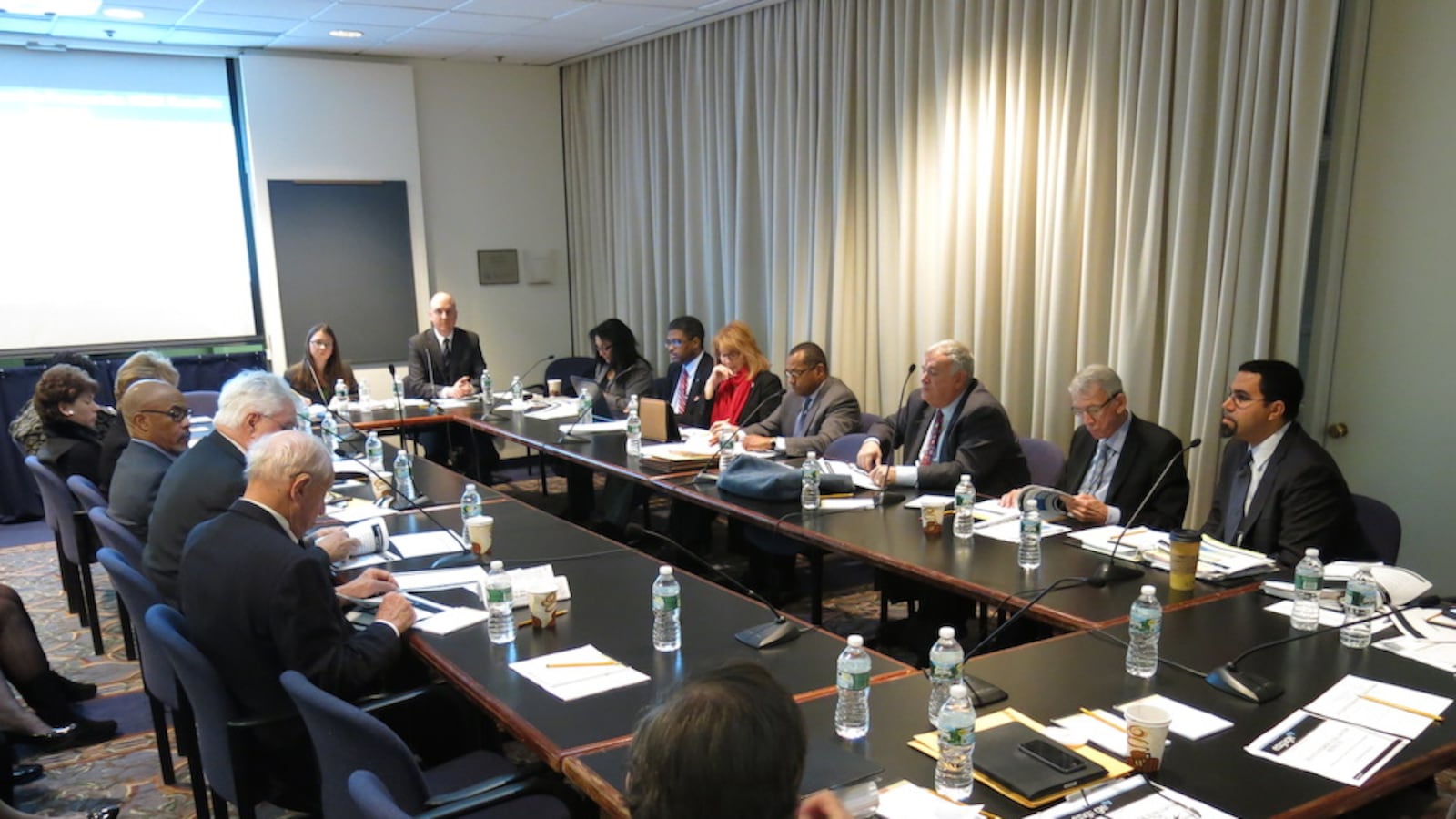With almost no public warning and and little board discussion, a 17-member policymaking body wiped out one of the main elements of the state’s teacher evaluation law late last year.
A few months later, the same body, the New York State Board of Regents, passed a regulation that enabled thousands of students with disabilities to become eligible for diplomas only weeks before graduation. The provision was enacted so quickly, some disabled students could have diplomas in hand even before the public comment period on the measure ends.
How can the board be allowed to make sweeping policy decisions with such little notice? According to New York State, these regulations were “emergencies.”
State law allows policymakers to bypass normal rules of public comment if a measure is necessary to preserve “public health, safety or general welfare.” But increasingly, that provision has been used in situations that critics say fall short of that bar.
“When there’s a trend of major policy decisions being made via emergency measures, that feels like a misuse of the policymaking authority,” said Ethan Gray, founder and CEO of Education Cities, a nonprofit that works in 24 cities across the country. “There’s no state that I know of that is making changes as sweeping as New York [is] right now.”
The state argues that each provision is necessary to protect the general welfare of students and teachers. The change to teacher evaluations, for example, was touted as necessary to ease the burden of last year’s unpopular law on schools and districts. Graduation changes, state officials argue, were intended to make sure qualified students could graduate this year.
“Emergency actions are just that — emergencies,” said New York State education department spokeswoman Jeanne Beattie. “The emergency regulations recently considered and passed by the Board of Regents were necessary to ensure that students who may not have otherwise graduated this year have the opportunities to pursue college or career with a New York state diploma.”
State Education Commissioner MaryEllen Elia hinted at another reason for emergency regs. “There are a lot of things on our plate right now and as we get them completed, we want to move forward,” Elia said after changing graduation requirements.
State officials also argue that they have reached out to stakeholders and are responding to community concerns when they pass emergency regulations. A task force convened by Governor Andrew Cuomo, for example, suggested placing a moratorium on the use of grades 3-8 state math and ELA tests in teacher evaluations a few days before the board voted on the measure.
But good government advocates say treating these issues as “emergencies” deprives the Board of a robust public conversation. Robert Freeman, executive director of the Committee on Open Government, wasn’t impressed by the provision that requires Regents to open public comment after an emergency regulation is enacted but before adopting it permanently.
“What good is public comment if they’ve already done it?” he asked.
Last year, when the state had to adopt emergency regulations to implement some teacher evaluation provisions, the state education department created an email address people could use to express opinions about the changes and let them offer comments at an Albany “summit,” according to Politico.
There is good reason to have the public weigh in on policy changes, critics say. It allows advocacy groups to explain how the policy will affect their members and avoids changing the rules on schools at the last minute.
Brooklyn Preparatory High School Principal Noah Lansner told Chalkbeat that a student at his school might have benefited from the state’s decision to allow students with disabilities to earn a diploma by passing only the math and English Regents exams. But since the measure was passed in June, the student spent the entire year trying to pass four Regents, and ultimately failed to graduate this year.
“If I knew in September that he would graduate with only [the math Regents], we would have been focusing all of our efforts on that,” Lansner said.
When the Board made sweeping changes to graduation requirements in the past, it held a series of long discussions about how the changes would affect students, said Peter Carr, an advocate for career and technical education.
“In my short time dealing with education issues, most of what I’ve seen has been very deliberative and thought-out assessments of policies,” Carr said. “I’ve just found it kind of interesting that some of these new [graduation] pathways issues have been done on an emergency basis without a real explanation of what the emergency is.”
Bob Lowry, deputy director of the New York State Council of School Superintendents, echoed his concerns.
In the past, the state would sometimes post materials weeks in advance of meetings, have extended discussions about policy papers, and then hold an “intense debate” about how to execute those policies, he said. Now those policy memos are often posted late Friday for a Monday morning meeting, though a new state law may require the state education department to post materials slightly earlier.
“It’s perhaps understandable why the department has not been able to continue to apply that practice,” Lowry said. “But there’s something between the way the department functioned years ago and waiting until after 5 p.m. on Friday to post items.”

